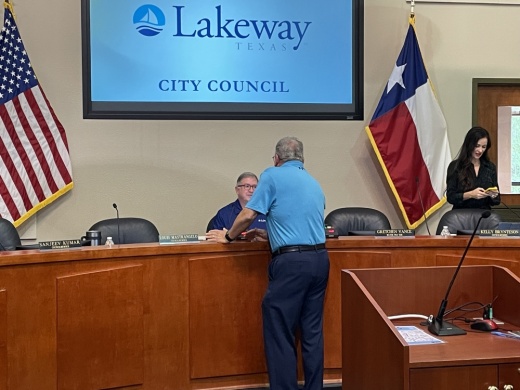The proposed rate is expected to officially be voted on and adopted after a second reading during the Sept. 19 City Council meeting.
The tax rate adopted by council for the 2021-22 fiscal year was $0.1545. As a result, with the new rate implemented, the average homeowner will see a reduction of $40 in their overall tax bill, despite rising property values, according to the city.
City Manager Julie Oakley said the taxable ad valorem rate—the tax rate based on property values—grew 23.7% from 2021 to 2022. The taxable value, which was approximately $5.7 billion in 2021, grew to $7.1 billion in 2022.
Most of that growth,19.7% or $6.8 billion, is from an increase in the values of the properties that were already on the roll in Lakeway for fiscal year 2022, Oakley said. The remaining 4% is from approximately $230 million of growth added onto the property roll this past year.
“The new growth [properties] is the highest Lakeway has ever seen,” she said.
The value of a commercial or residential property in Lakeway is determined by the Travis Central Appraisal District. According to the Texas Comptroller' office, “Tax Code Section 23.01 requires taxable property to be appraised at market value.” The comptroller's site also says that mass appraisal is determined by a number of factors, including size, use, construction type, age and location. Data from recent property sales is also taken into account.
As property values go up, the tax rate must come down to offset any increase in tax levy, which is the amount everyone is going to pay, Oakley said.
“The city has been very judicious in doing that,” she said. “They haven’t, historically, kept the tax rate the same as the appraised values have risen. They offset those values by dropping that tax rate.”
Since the $0.129 tax rate has been officially proposed by council as the maximum tax rate, the rate can be lowered if recommended by council; however, the rate cannot be higher than $0.129.





